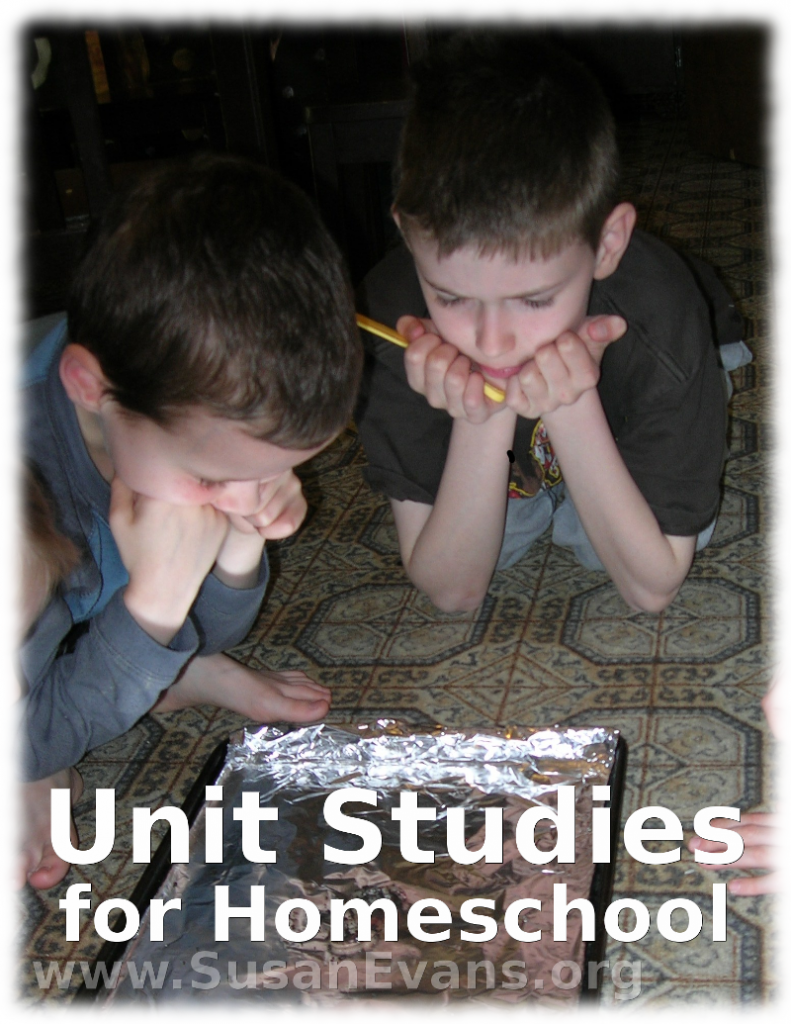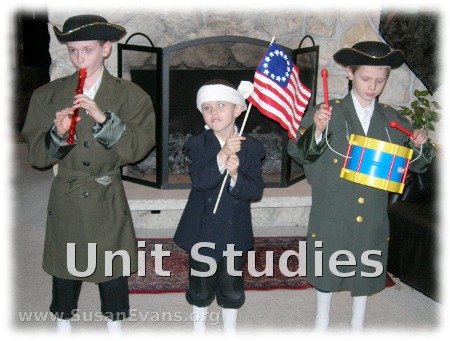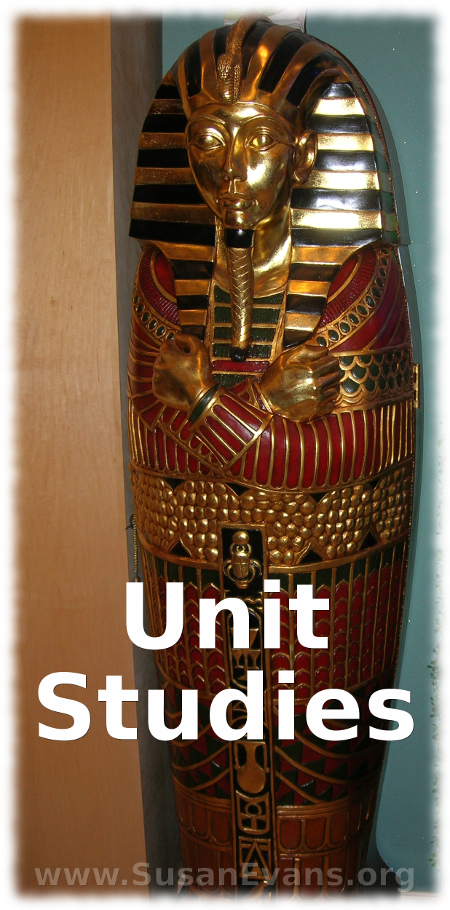Have you considered unit studies for homeschool? Last night I did a live interview about unit studies:
Here are some of the questions we covered. We ended up talking about high school and other topics, too! We never got around to the burnout question, but I’ll cover it in a future hangout:
1. What is a unit study?
When you pull together all kinds of fun activities for one topic of study, you have a unit study. Homeschoolers will do unit studies about a certain time period in history or a science topic their children want to explore. When all subjects (besides math) are tied together, retention is higher. For a Renaissance unit study, you could enjoy watching Shakespeare in the park, write poetry, read about Leonardo da Vinci, and create your own invention.
2. How do you put together a unit study?
First you would collect books from the library about this topic. I always look for supporting DVD’s, which you have to be careful to preview before showing your kids. You can decorate a notebook about that topic, and have your children do fun writing assignments about what they are learning. Create field trips and hands-on learning experiences to go along with your study, and you will have mastered that topic.
3. How can you get ahead on academics through unit studies? How does that work?
You can definitely get ahead academically through unit studies in the content areas. Those would be history and science. We covered all the time periods in history several times, and we covered each topic in science in-depth. We ran out of science topics, and my kids were ready for high school science at age 10 because we had gone so in-depth on each of the topics. My son Stephen began high school Biology at age 10 and aced all his Biology exams. He now wants to be a microbiologist.
4. Do you have to do crafts if you use unit studies?
No, you do not need to do crafts if you do unit studies. But part of what unit studies stands for is hands-on learning. So you can cook a meal from the time period you are studying (that’s not a craft), or go on a field trip that correlated with that topic (which is also not a craft). Many families who do unit studies don’t do any crafts but instead create a notebook where they can bring to life that topic through drawings, creative writing, or 3-dimensional pages that have fold-outs or envelopes that you put something into.
5. How do you not burn out while doing unit studies?
That’s a great question and one that I’m asked a lot. I do unit studies in spurts. We might only read living books for 3 weeks, and then on the fourth week we do a ton of hands-on activities all back-to-back. If you’ve just had a new baby, you can read to the kids for a while. One year when I was exhausted from a new baby (or some other trauma in my life), I read great classic works of literature for the Middle Ages, and it wasn’t until I regained my strength by the end of the year that we did tons of hands-on activities like a Medieval feast and a huge cardboard castle. So you can homeschool with unit studies, and it doesn’t have to be labor intensive.






